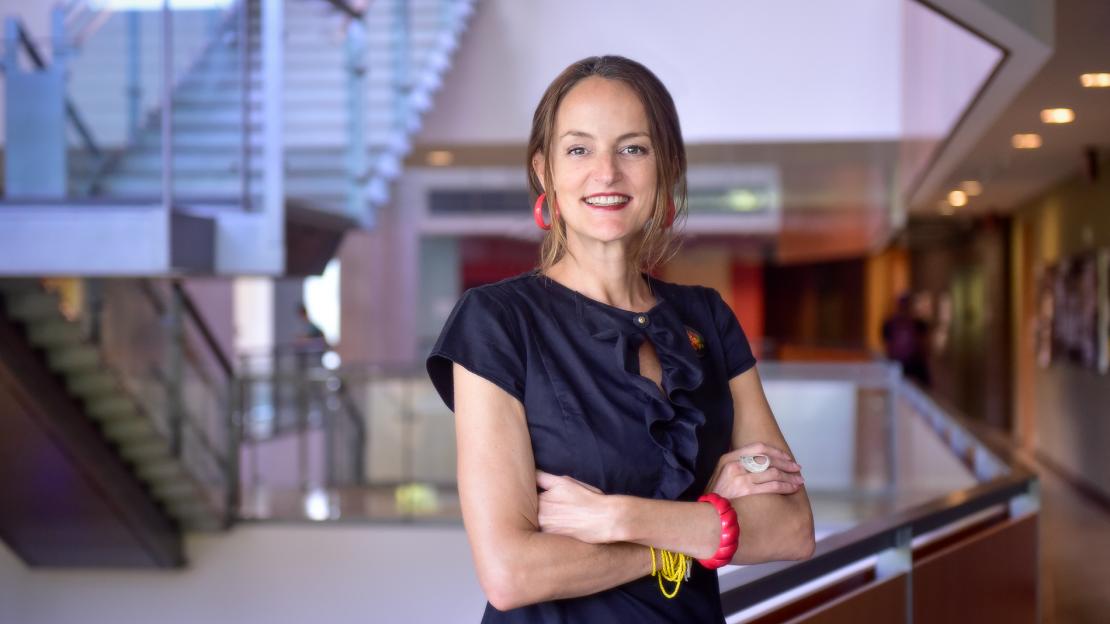For the last five years, Laura Bisaillon has polled her health studies students on what they want to do after graduating. She found each year that about two-thirds were interested in two areas of government – health programming and public policy.
But when Bisaillon, an assistant professor of health studies at U of T Scarborough, pushes students to explain what they mean, and what this work actually looks like, she noticed students use these terms as “professional buzzwords,” without much substance.
“My concern is to be able to teach them skills to be good thinkers, empathetic-feeling actors, and ultimately wise people in their pursuit of such work,” Bisaillon says. “So, when they land in government, they will have a sociological toolbox of identifiable skills to do policy analysis.”
The 2018 fall semester will debut a new focus for Bisaillon’s new C-level course, Special Topics in Health Studies: Feminist Health Policy Analysis. The signature goal of the course, she says, is to produce “thoughtful workers” that can do policy “from the ground up.”
“Health means more than just the absence of the disease,” she says. “Health is living well and being able to live and work in good conditions.”
Bisaillon says the first thing she teaches students is to shift their mindset, to realize that they may one day become the people developing policies that shape their community, province, or even nation.
The course begins with students identifying issues they observe and problems that manifest in their personal lives, then works forward to explore political and social history, social organization, and different experiences of oppression.
“There are similarities and patterns across geography and time,” Bisaillon says. “It’s when we become conversant in social history that we begin to learn from it and ultimately become wiser because of it.”
She hopes that by seeing and reflecting on the ways policies shape their daily lives, students will be able to bridge critical thinking with creativity and “do policy analysis that has heart and soul.”
“Creativity in this instance means not doing public policy in the usual sort of way, as dominated by numerical priorities and deductive reasoning, but by using one’s own life and what goes right and wrong as points of entry for inquiry,” she says.
“What you’re experiencing as problematic is also experienced as such by others, which tells us something about the society we live in.”
Course readings will use Canadian scholarship produced at the Ontario Institute for Studies in Education (OISE) and U of T, created by both men and women social thinkers since the 1970s.
The course is framed by the scholarly contributions of Dorothy Smith, a world-renowned Canadian sociologist and professor emerita at U of T. Smith pioneered institutional ethnography, a “feminist tool” that shows us how to make connections between our everyday experiences and the enactment of public policy, for example.
“The course challenges norms around who actually does public policy work — it’s not just political scientists in the academy, or civil servants in offices someplace,” says Bisaillon, whose research is in the sociology of health and illness, socio-legal studies and migration studies. Her work produces knowledge about shows how problems are socially produced and organized above and beyond individual experience.
“When we use ethnography, observation and textual analysis, and start within our own lives, cool stuff happens. Students begin to see how their lives connect in very tangible ways with big issues.”
Bisaillon says the course also aims to address two particularly problematic trends in public health education and practice: poor engagement with history and the impulse to intervene to “fix.” She says she wants her students, as future health workers, to leave her course with nuanced understandings and skills to slow down, listen, reflect and look ethnographically before jumping in.
“There’s an urgency to this since, as history shows us, change comes from the margins, not the centre. In seeing and staying focused on society itself as problematic, we can imagine getting somewhere,” she says.
“You need guts to address social problems as symptoms rather than causes.”
